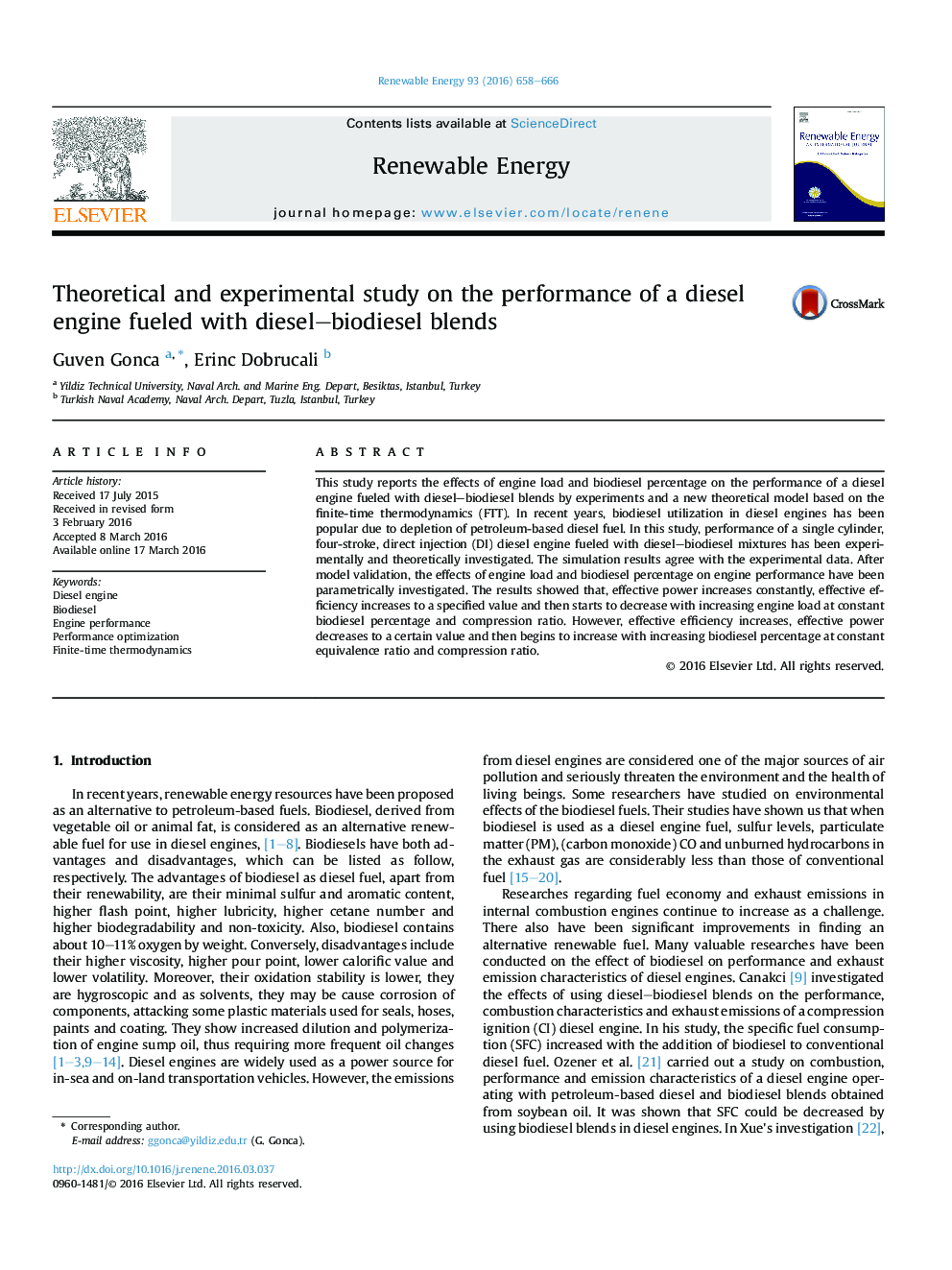| کد مقاله | کد نشریه | سال انتشار | مقاله انگلیسی | نسخه تمام متن |
|---|---|---|---|---|
| 299798 | 512445 | 2016 | 9 صفحه PDF | دانلود رایگان |
• Biodiesel combustion is simulated based on a new finite time thermodynamic model.
• Simulation results agree with the experimental data.
• Effects of biodiesel percentage and load on performance of a diesel engine are examined.
• Engine load increase affects positively the performance.
• There is optimum point of biodiesel ratio which gives maximum performance.
This study reports the effects of engine load and biodiesel percentage on the performance of a diesel engine fueled with diesel–biodiesel blends by experiments and a new theoretical model based on the finite-time thermodynamics (FTT). In recent years, biodiesel utilization in diesel engines has been popular due to depletion of petroleum-based diesel fuel. In this study, performance of a single cylinder, four-stroke, direct injection (DI) diesel engine fueled with diesel–biodiesel mixtures has been experimentally and theoretically investigated. The simulation results agree with the experimental data. After model validation, the effects of engine load and biodiesel percentage on engine performance have been parametrically investigated. The results showed that, effective power increases constantly, effective efficiency increases to a specified value and then starts to decrease with increasing engine load at constant biodiesel percentage and compression ratio. However, effective efficiency increases, effective power decreases to a certain value and then begins to increase with increasing biodiesel percentage at constant equivalence ratio and compression ratio.
Journal: Renewable Energy - Volume 93, August 2016, Pages 658–666
